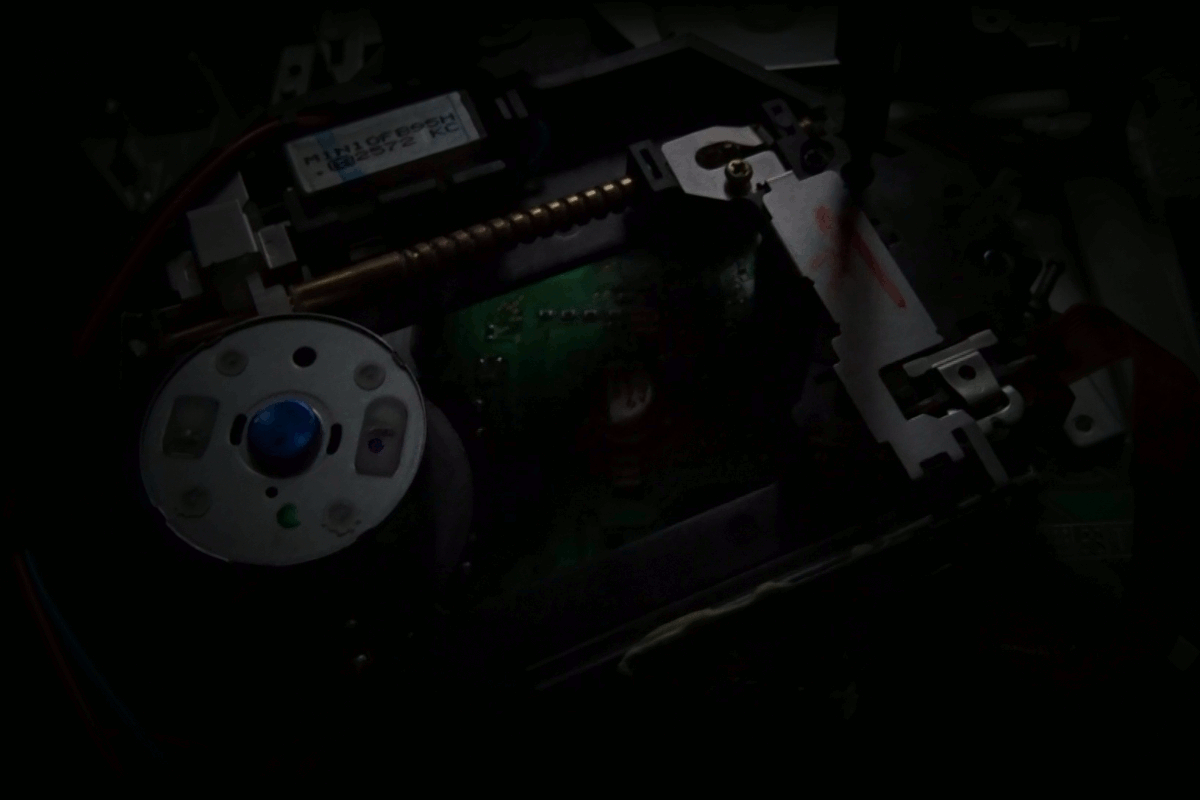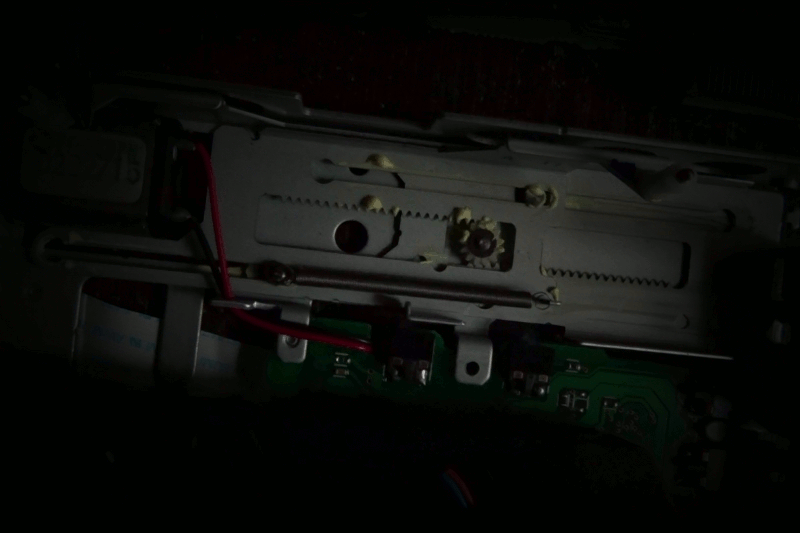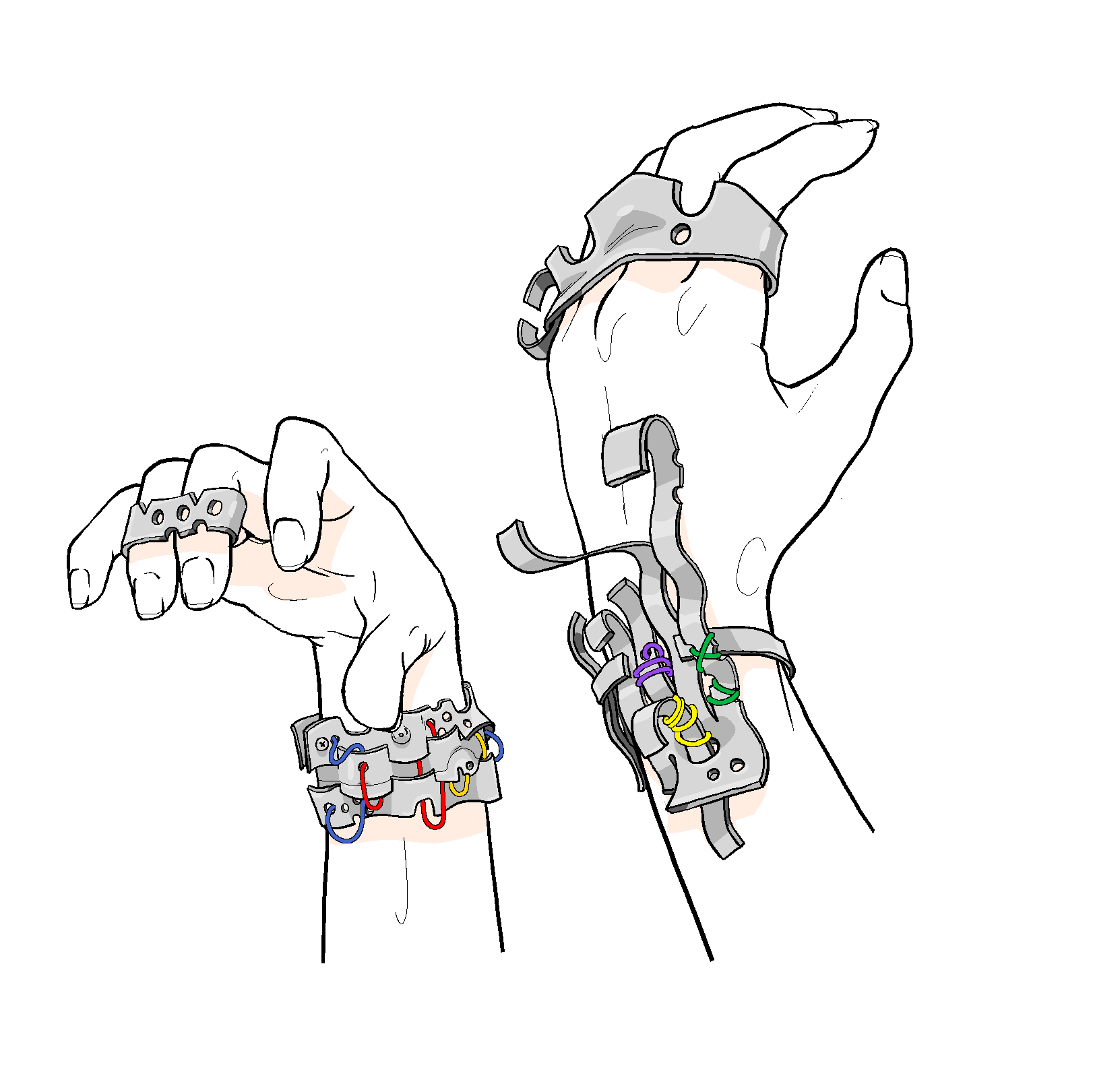/ / / / caught
my own eyes
in the / / / /
/ / / / tick, tick
broken stone
in the door
melted wax
in the seat
matches, dust,
mine / / / /
/ / / / / / / /
kisses through the window
one hundred million
metres
sweetheart I’m only hours
away, twenty-five
litres
/ / / / / / / /
/ / / / Open
Well, I couldn’t always face you in the day –
Watch my little wishes in the light, how they
But I breathe like anyone, so again:
Your air was a gift, and your night held fast
Fixed here, to earth, by your line. / / / /

In 2021 I disassembled some old car audio systems; the primary subject was from a 2002 Toyota Corolla, and the next two were from an older Toyota, and a Daewoo.
This project was equal parts research and material exploration of the devices. Through it I examined the history of car audio, the haptics of the audio interface, and broader questions about cars themselves.
Why do people drive at all? (Skip this text?)
Cars are more than a convenience; they are a place of one’s own. Owning a car and driving comes with implicit and explicit notions of security, autonomy, and freedom.
A passage of interest, from Affective and Symbolic Aspects of Car Use (Gatersleben, 2007):
“Stokes and Hallett (1992) suggest that the psychological reasons for having and using a car (e.g., habit, emotional attachment) are more important than the practical ones (e.g., convenience, speed, cost).
There is something special about a car. Not only do people use it to drive to places, they also dream, flirt, relax, listen to music, sing, chat, sleep; and some people even get buried in a car.” (Gatersleben, p. 220)
Similarly, Ambivalent about travel mode choice? A qualitative investigation of car user and non-car user attitudes (Hoffman et al., 2020) discusses the idea of ‘intra-personal attitude variability’; ambivalent, conflicting, and context-dependant views on transportation. Through interviews with car users and non-car users, they found that people could make varied and contrasting statements on modes of transportation, within categories such as cost, safety, comfort and stress, speed, and flexibility.
Unfortunately, personal cars and the systems built around them are some of the worst things about Australian society as we know it; they are taken as a given, but not necessary to our world.
Ambivalence and habit are not enough to justify their continued usage. Although I love my car and I love to drive, we must find a way to part from these things...
In disassembling the car radios and reconstructing them as new artefacts, I sought to replicate the impression of a surrounding car space, carried anywhere.
An interface invites the wearer to engage in regular ritual to sacralise the microclimate between wearer and artefact, while bent metal provides a sense of shell.
Keep the car with us as we take to the trains, no?
Gatersleben B, 2007, ‘Affective and Symbolic Aspects of Car Use’, in Garling T & Steg L (eds.),
Threats from Car Traffic to the Quality of Urban Life: Problems, Causes, and Solutions, Emerald
Group Publishing, pp. 219-233.
Hoffman C, Abraham C, White M, Skippon S, 2020, ‘Ambivalent about travel mode choice?’,
Transporation Research Part A, vol. 141, pp. 323-338.

What of the artefacts? This is a work in progress. As usual, I got caught up taking close photos and writing poetry – it's all the dust, the time, the distance that inspires it. It is difficult to bend metal, and furthermore, no one will let me sample any of the battery acid even though it looks delicious. Below are a couple of designs. Come back sometime for the real things...

We will never meet
At nearest I was
Not yet myself, even.
Still, I heard something in you
And that caught me,
And stayed.
That remains.
At closest I was –
Well. That time is gone.
Still, you told me something
And I can trace my lines
Right back to it.
That persists.
I’d like to know you, but
We will never meet.

